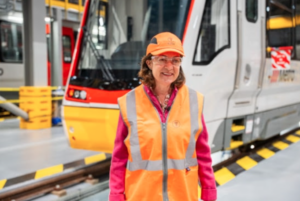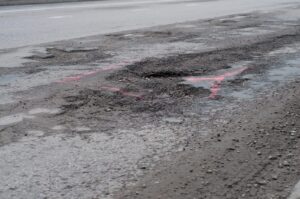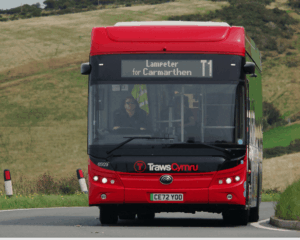A panel consisting of climate change and transport specialists from across the UK, will be led by Dr Lynn Sloman MBE will take charge of the Welsh Government’s road review.
The Deputy Minister for Climate Change, Lee Waters MS, has announced the Chair and panel that will be carrying out the review and confirmed the road schemes that will be considered as part of the review.
The panel will consist of:
- Julie Hunt: a Chartered Civil Engineer working for an engineering consultancy and Chair of the Chartered Institution of Highways and Transportation (Cymru Wales).
- Professor Glenn Lyons: University of the West of England, specialising in Future Mobility.
- Geoff Ogden: Director of Planning, Development and Advisory Services at Transport for Wales.
- John Parkin: Professor of Transport Engineering and Deputy Director of the Centre for Transport and Society at the University of the West of England.
- Professor Andrew Potter: Cardiff Business School expert in freight, logistics and operations management.
- Helen Pye: Head of engagement at Snowdonia National Park Authority with involvement in traffic and parking management.
- Eurgain Powell: Transport specialist with the Office of the Future Generations Commissioner.
In light of the climate change emergency, the panel will be asked to consider whether new roads are the right solutions for transport problems, or whether there are alternative sustainable modes of transport that would work better.
The Deputy Minister for Climate Change, Lee Waters said: “Transport generates around 17% of all our emissions, so must play its part if we are to reach our target of net zero emissions by 2050.
“We need to move away from spending money on projects that encourage more people to drive, and redirect this money on maintaining our existing roads and investing in real alternatives.
“We recognise that these decisions throw up tensions, but we have to confront that if we’re going to make a real difference. We’re not saying this is the end of road construction in Wales, but the panel of experts that I have announced today will ensure that this is no longer the default response to a transport problem.”
Instead, said Mr Waters, money saved by not building new roads will be used to improve existing infrastructure, helping to create new bus and cycle lanes that give people a meaningful alternative choice for travel.
Dr Lynn Sloman, Panel Chair said: “The Panel will bring a wealth of experience and diversity of perspectives to this Review. The climate emergency makes it imperative that we avoid any investment that increases carbon emissions, especially in the next 15 years when most cars on the road will still be petrol and diesel vehicles. But we also need to understand the problems that road schemes have been designed to address – whether safety, air quality or unreliability – and consider how those problems can be tackled without increasing carbon.”
The panel will provide its final report next summer.























